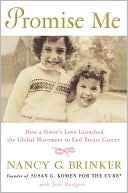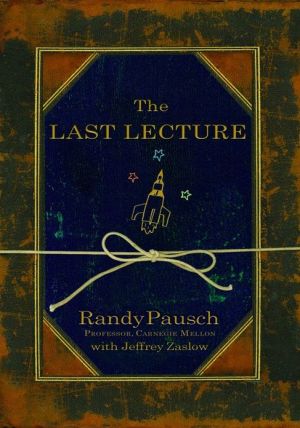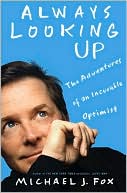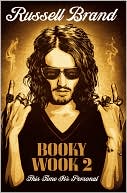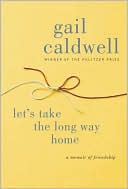Elijah's Cup: A Family's Journey into the Community and Culture of High-Functioning Autism and Asperger's Syndrome
Faced with her two-year-old toddler's precipitous bout with epilepsy and his puzzling behaviors, Valerie Paradiz took a bold and unusual path, coming to terms with and ultimately embracing the strange beauty of her son Elijah's special neurological disorder, which was diagnosed as Asperger's syndrome, a form of autism.\ In "Elijah's Cup," Paradiz tells the powerful story of her family's struggle with her son's disease, one characterized by social awkwardness, literal-mindedness, and a...
Search in google:
The two-year-old toddler Elijah Paradiz was diagnosed with Asperger's syndrome, a form of autism characterized by social awkwardness, a fixation with particular subjects, and literal-mindedness. Elijah's Cup, written by Elijah's mother, gives a groundbreaking insider's view of the beauty of minds hidden in the shadows of autism. Publishers Weekly This expressive and deeply felt memoir explores how the diagnosis of the author's son, Elijah, with Asperger's syndrome (a high-functioning autism) changed her life. As a young child, Elijah had delays in language and motor skills, and also suffered seizures. Paradiz, an assistant professor of German studies at Bard College, details the subsequent dissolution of her marriage (although she and her ex-husband are now friends) and her own depression, events triggered by the problems of coping with Elijah's needs. After Paradiz hired a babysitter with Asperger's syndrome and read several accounts written by people diagnosed as autistic, she understood that her son was a visual rather than a verbal thinker. (According to the author, Albert Einstein and Andy Warhol both had Asperger's syndrome.) This realization led her to provide Elijah with the repetitive activities he needed to enjoy his life. She describes their time together at Autreat, a camp for autistics that emphasizes self-advocacy, an idea that has been rejected by more traditional parents and teachers, who believe that autistics cannot know their needs. This is a moving personal story that highlights a new way of thinking about people diagnosed as autistic. (Apr.) Copyright 2002 Cahners Business Information.
\ Chapter 8: Balloon Days \ Because of death or in spite of death -- I don't know which -- Elijah and I learned about expansion. These were our balloon days, when both of us had grief for lost relations. Temporarily, Elijah had lost me, and I had lost my three dead ones. On balloon days, you learn to expand. You fill up the empty space and, in spite of sadness, discover lofty new dimensions of the self. But not without pain. As if caught in a horrifying slow-motion dream, my attempts to see Elijah were thwarted again and again by the depleting funerals in Colorado and my inevitable dips into depression. Elijah, requiring vigilant routine just to make it through a day, was pressed to his limits by my erratic absences.\ The first lesson in expansion is to rid oneself of judgment. Ben's house became Elijah's permanent home base during the funeral months. It had many rooms, and Ben had hired a live-in nanny. I wanted to judge that big house. I wanted to judge that nanny. Their very presence magnified my feelings of guilt and incompetence. I wanted to judge Ben most fiercely of all, as he coolly worked in his spacious office, convinced that I had abandoned all responsibility to our son. Death had turned my life into a mire of emotion, until I could no longer distinguish who or what I was mourning. Often I had to cancel Elijah's visits to Brookside Cottage, and as Ben assumed the new demands of caring for our son, he became all the more estranged toward me.\ Emma was exasperated. "You're a single mother with no family in this town! YOU HAVE A DISABLED SON!" She was moving into another well-intentioned rant, designed to remind me of the obvious. Having just postponed Elijah's next visit in a heated exchange with Ben on the phone, I had mumbled something about being a "terrible mother." That got Emma going. "You have no financial support! By your wits you're covering both your expenses and Elijah's at Brookside Cottage, with no help from anyone! It's more than most women can do. You should be proud of it!"\ "I miss Elijah, Emma, but I can't do it."\ "I know that, honey."\ "I need some rest. I'm going to my room to take a nap."\ "Good. Try to put it on a back burner. Elijah will be back here again. You'll see."\ Elijah was now four and half years old and struggling to learn to use the toilet at school. His teachers decided it was the right time for him to make the transition out of diapers. "Mommy!" he called out one day, sitting on the toilet at school where they had worked out a reliable potty schedule for him. This was the first time Elijah called me "Mommy," and detailed reports of his progress came home in the daybook. The daybook was a diary of notes exchanged between home and all of Elijah's therapists at school. It was crushing for me to read it, because in between the lines I saw that our separations had pushed Elijah to his limit. He had no choice but to expand. "Mommy." The word came out, and I was nowhere to be found.\ Elijah developed a special fixation during our months of mourning, and it stayed with him for years afterward. He became compelled by balloons, the same way he had been so mesmerized by the clown's top hats. This balloon fixation became our perilous rite of passage toward renewed stability. It began as a simple ploy on my part: a trip to Woodstock's general store to buy a helium balloon if Elijah was willing to go to the supermarket first. The approach took hold. He had enough passive language to grasp the situation -- that is, if I explained and elaborated and talked us all the way through it. He needed constant verbal fortification to keep a firm grip on the procession of environments we moved through, going from home, to car, to supermarket, to car again, then finally, to the balloon store. Each transition inspired dread, but with the balloon as destination firmly lodged in his mind, Elijah was able to leave the myopia of home and venture out into what lay beyond our front door.\ "Do you want to go to town and get a balloon?" I ask, strategically ending my sentence with the most compelling semantic content.\ "Balloon!" he replies, scooting toward the door. I'm ready for him, with his coat and boots in hand. He allows me to put them on. "Balloon."\ "Yeah. But first we're going to the supermarket, then we'll go to Houst's."\ Houst's is the name of the general store that sells the helium balloons, but we have to keep things straight. In the car, all the way to the supermarket, I must remind Elijah of our itinerary. Then, once in the supermarket, I repeat it several more times, while pushing him up and down the aisles in the shopping cart and madly grabbing enough food off the shelves to last a few days. Ben is out of town, and Elijah is staying with me at Brookside Cottage for nearly two weeks. It's the longest time we've spent together since all the funerals. Elijah's patience is running thin now, and we've been in the supermarket only five minutes.\ "Balloon!" he says forcefully. I respond by calmly reviewing the planned sequence of events.\ "First we shop here, then we go to Houst's for the balloon."\ We finish the shopping with little incident, then finally drive on to the general store where Elijah has a sophisticated mental picture of what awaits him there. Before I have even opened the door to Houst's halfway, he has quickly shot inside and darted over to a quiet corner where the balloons are displayed in small bins. He scans the countless colors and patterns. Elijah is choosing bright orange today. He holds the balloon in his small hand and stares into it.\ "Orange," he softly chants.\ The daybook from school reports that Elijah is now labeling three colors appropriately. One of them is orange. This moment in the general store must have deep meaning for him. "Orange," he repeats many more times until I interrupt his reverie with a cue to take the balloon over to the lady at the cash register, who by now has become used to our frequent appearances. For the past week we've been on a binge, coming into Houst's at least once a day, sometimes twice, if our other repetitious schemes at home become too stressfully rigid and we need to replace them with new ones. Elijah stands before the woman at the cash register and does nothing. I lightly touch his arm to prompt him through the next step, which is to pass the balloon across the counter to the lady. She reaches out and takes it from him.\ "Thank you! You've made a nice choice today." Elijah waits silently. A few moments pass. He's becoming mildly frustrated by her talking and by what seems to be an uncalled-for delay. "Okay, then," she says, "let's go fill it up." Unaware of his invisible anxiety, which I'm registering as a red flag, she casually walks out from behind the counter and makes her way over to the helium tank. Elijah falls in behind her. He's right on her heels, following this next step of the ritual as if according to some rule book. At the tank, I sidle up behind him, gently pull his body close against my legs, and cover his ears with my hands.\ "I'm doing this for the loud whistling sound," I remind him, not wanting to repeat last week's disaster.\ The woman fits the opening of the balloon over the spout of the tank and begins to fill it up. Though the high-pitched whistle penetrates my hands and causes him to stiffen, Elijah watches, transfixed, as the balloon looms large and as its color changes mystically from an opaque orange to an almost translucent peach. It bulges so extremely in size that suddenly I'm struck with panic. The balloon could pop and devastate our nearly successful mission! But the lady finally removes it and casually ties it off.\ "What color ribbon do you want?" she asks Elijah, who has no answer. He's stimming. He's so taken up with the change in the state of the balloon that he is rendered wordless.\ "Any color will do," I answer nervously on his behalf, now feeling a strong impatience rising up his spine as it presses hard against my legs.\ "He's shy, isn't he?" the woman remarks, beginning to feel a little awkward about us. She's probably wondering why we keep coming in here every day. Elijah is about to burst now. He's had enough social interaction for the moment. He wants to high-tail it out of here, but he contains himself. I feel the effort in his body. He's committed to that orange balloon.\ "You're doing a good job," I whisper as he zeroes in on the woman's busy hands that are cutting a long piece of orange ribbon from a nearby spool.\ "This is a nice color. See?" She holds the ribbon up. "It matches the balloon!" When she finishes tying the ribbon to the balloon, she bends down and passes the end of it to Elijah. "Now, don't lose it!" she sweetly admonishes him.\ "Lose...it," he answers back. I'm thrilled to the core by this. It's the first time, after a week of practice, that Elijah has spoken directly to the checkout lady.\ "No, silly," she corrects him, "I said don't lose it." Elijah doesn't respond to this. "You might want to tie it around his wrist," she adds, cautioning me with this advice. "You don't want to lose that pretty balloon, now, do you?"\ I shake my head guiltily "no." Of course not. A lost balloon is grounds for tears. A lost balloon, rising up into the atmosphere never to be retrieved again, means certain tragedy for any child. But little does the lady know that I'm feigning, for Elijah has far different plans in mind.\ "Outsiiiiiiiide!" he screams shrilly, startling the woman to the quick and sending her bustling back over to the cash register.\ "Okay," I attempt to say with a firmness that I hope will grab his attention, but Elijah is now so stressed he might not make it through the full routine. I bend down close to him without making direct eye contact. It would be too much for him right now. "First we have to pay for the balloon." I say the words clearly, looking into the thin air beside him. He's about to throw himself on the floor and bang his head. The situation is snowballing. "C'mon, let's do it!" In a last-ditch effort, I take his hand up in mine with awkward confidence, and we proceed to the cash register, just barely in possession of ourselves. Then Elijah, with his new balloon in tow, bolts for the exit.\ "Here!" I call out frantically to the checkout lady and toss a dollar onto the counter.\ "Thank you!" she chimes back. "Bye-bye!" she adds cutely, wanting to assuage Elijah's puzzling discomfort.\ "Say 'bye-bye,'" I cue him, darting to his side in the open doorway, realizing painfully in the same breath that I sound as if I'm speaking to a baby who's just learned to wave at strangers.\ "Bye...bye," Elijah replies, slowly and arduously integrating his rash movement out the door with his speech. He's entirely out of earshot of the woman, for the door has swung closed behind us. Eventually, he'll say "bye-bye," and "hello," and all the other greetings appropriate to neurotypical discourse. He'll say them at the right time, in the right place, with the right vocal intonation. He'll say them while making the right kind of eye contact and with the right amount of distance between his body and someone else's. But these things are methodically learned hand over hand for an autistic. They must be practiced as a reliable system.\ We've landed outside in the center of town on the busy main drag called Tinker Street.\ "Let go!" Elijah yells. He wants to release the balloon and watch it fly up into the heavens. After all, it's why we came here in the first place. It's what he's been working up to ever since we left the house.\ "Wait!" I interject. "We'll let it go, but let's walk over to the field."\ "Let go!" he insists again.\ "Yeah, at the FIELD. C'mon." I take his hand and lead him down Tinker Street. The big orange balloon is tugging on its ribbon above us, as we slip around a corner and walk one more block.\ "Let go!" Elijah happily sings when the field comes into view.\ "Yeah, IN THE FIELD," I remind him again, still so rattled from his shriek in Houst's that I could scream too. There are moments such as these when life with Elijah becomes so narrow, so rigidly charted and overdetermined in every action and word, that I could burst out in fits of anger and resentment. But -- I don't know what comes over me -- I suddenly see the poignant humor of it all, and I laugh out loud at this crazy, lonely comedy routine we've put together, the one I have no chance of escaping. Elijah's balloon fixation has implicated me. I have no choice but to submit and perseverate with him.\ He tugs on my hand, picking up the pace toward the field. My eagerness for today's launch is suddenly growing more palpable. It's rising warmly from my stomach, like butterflies, moving up into the region of my heart. We step out onto the field. It's the same open space where the flea market happens in the summer, where Sharron used to park her van, but today the field is empty. It's winter. We crunch through the hard crusty snow, and before I even have the chance to cue him on it, Elijah releases the balloon.\ "Oh! You scoundrel! You let it go!" I tease him.\ The orange globe shoots straight up into the gray sky. It goes up and up, drifts momentarily sideways on a breeze, then moves more directly upward again. Elijah carefully monitors every motion.\ "High! High! High!"\ "Yeah, it's going high up."\ "Small!" he adds.\ "Small?"\ "Small! Small!" he elaborates, still looking up. I'm surprised to hear Elijah use this new word in our balloon context. At the Children's Annex his teachers would call it "spontaneous speech," which he has been expressing with more frequency. Spontaneous speech is language that is neither cued nor prompted nor otherwise pedagogically extracted from him. It's utterly authentic to the situation. We stand there together in the field as we usually do, tracking the balloon until it completely disappears from sight.\ "Small!"\ "I get it! The balloon is getting small."\ "Small," he says again, pleased that I grasp this perception of things.\ "Yeah! The farther away the balloon goes, the smaller it looks."\ "Small," he affirms satisfied by my description, which he himself cannot summon forth as speech. Elijah is happy and expansive. It has been a good balloon day.\ *\ Over the course of several months, as Elijah's stays at Brookside Cottage become more frequent and regular, we go into Houst's and add new layers of experience to his social repertoire. Soon he is saying the word "helium" all day long, pressing me to engage with him in repetitious talk about "helium balloons" that "float in the sky" and "air balloons" that "stay on the ground." After countless trips to the general store, the tedious social formulas of "hello" and "bye-bye" and "What color do you want?" become less nerve-racking for him. Elijah even chats the checkout lady up, saying five choice syllables the moment he walks in the door: "Heeee...liiii...um baaa...looooon." Then he makes a beeline for the bins.\ "What color are you going to choose today?" the woman calls out as he passes by the counter with no answer. He's now making his selection all by himself and brings it back to the cash register without my prompting.\ One day, as the woman and I waited for him to return to the counter, I revealed to her that my son was autistic. I thought our camaraderie with her had made it safe.\ "There's nothing wrong with him! He's perfectly healthy!" she challenged me, incredulous that I would suggest such a thing.\ I fumbled for an answer. "Well...of course there's nothing wrong. He's autistic. That's why we come in here all the time." I had hoped to enlighten her about our ritual, but she just shook her head in disbelief.\ That's the day I learned about invisibility and how far Elijah could depart from neurotypicality and seem to go unnoticed. Friends even criticized me for falling victim to "those awful labels that only stigmatize the child," but I found their remarks overly simplistic. Sure, I had my bone to pick with condescending language, but not with the word "autism" itself. Such quickness to deny or minimize Elijah's way of life were insulting in the early years, before I learned that I would have to let go of public ignorance the same way Elijah lets go of his balloons.\ A year had passed since I moved into Brookside Cottage. Though Ben and I were divorced, something had changed for the better in our family dynamic. I saw it in the daybook one spring morning as I sat on the back porch of the house reading all of Ben's notes to the school. I began with the day that Elijah had first moved in with Ben, after my depressive episode and trip to the hospital. In the course of this year of loss, gruff Ben had become a mother of sorts! It was right there in the daybook in his notes to the teachers, in a language that was surprisingly taken up with the sophisticated minutiae of child rearing. "Elijah," he writes during the toilet training period, "has been tired this week and [is] off his food in the evenings at dinner...He feels badly that he's still not pooping in the potty. 'I can't,' he sometimes says to me. 'You can,' I say. 'Don't worry.' He smiles and gets happy. 'Sorry!' he says. 'Don't worry, you're doing fine,' I answer. He grins and relaxes."\ Much had improved between me and Ben, and by summer we were caring for Elijah mutually on a steady routine that he could count on. My grandparents had left me some money, and when the inheritance came through, my jealousy and judgments of Ben's home and Ben's nanny began to lift. Money made it possible for me to work part time and use the rest of my day to focus on Elijah's intense needs. I returned to the dissertation, a study of the German Jewish poet Else Lasker-Schüler, whose life as a writer and single mother of an unusual child had profound resonance for me. Lasker-Schüler was fast becoming my literary mentor. I also began translating German again and eventually returned to a teaching position at a private liberal arts college where I had taught in the past. Elijah and I moved out of Brookside Cottage and back into our old apartment in the clown's farmhouse. We still saw Emma Missouri all the time. Emma was family, but when I bumped into Bob one day in town and was told the apartment was free, I missed the open meadows and the big starry skies at night. I wanted to go back there with Elijah and reclaim a life that had been interrupted by calamity and depression.\ That was the expansive summer of Elijah's fifth birthday, when Ben and I sat beside the swimming pool at his house, discussing whether to move forward on a plan to wean Elijah off his anticonvulsant. The neurologist in New York city had given us his blessing. Elijah had been seizure free for more than two years.\ "Mum, Dad...watch this!" Joanne, the nanny, called out to Ben and me as she cued Elijah to jump from the board of the swimming pool. He jumped without inhibition, diving far far down to the bottom.\ "What a little guppy!" Ben called out proudly from where we were sitting. Then he turned back to me, his eyes wet with tears. "You know, Val, during those months when Elijah was living with me most of the time, it changed my life. It humanized me."\ "Me too. Things are getting better, aren't they, Ben?"\ "Yes," he said. "You're a good person, Val."\ "You are too. Can I tell you something?"\ "Sure."\ "Please take care of yourself, Ben. You're overworked. Elijah and I both need you."\ "Yeah."\ One of my new freelance jobs involved translating German documents for the science writer Dennis Overbye. Dennis was working on a book about Albert Einstein, and I was to render some of the physicist's unpublished personal correspondence into English. I met Dennis once a week and sat beside him in his office, translating Einstein's letters aloud into English as I read the German original to myself. Dennis pecked away at the keyboard, transcribing my words.\ A few months into the job, I began to hear reports from autism circles that Einstein was probably a high-functioning autistic with Asperger's syndrome. As I deciphered Einstein's handwriting in his letters to his family and to his closest friends, I began to read intimations of autism between the lines. As a small child, Einstein was thought to be a dullard, at least that's the word his grandmother used to describe him, and his parents were certain that he was subnormal. He was prone to emotional outbursts. He was solitary and taciturn, and he fled from the raucous sounds and sights of parades. He had a speech delay, showed signs of echolalia, and possessed a deep affinity for objects. "He was well past two," writes Dennis Overbye, "before he made any attempt at language. His most memorable utterance was at two and half when his sister, Maja, was born. Apparently expecting some kind of a toy, he demanded to know why she didn't have any wheels. Until the age of seven he had the curious habit of repeating softly to himself every sentence he said."\ Einstein also seems to have had delays processing language, for there was a lag time, or hesitation, before he answered questions that were asked of him. Ilana Katz, an Einstein scholar and parent of an autistic child, says young Albert was "withdrawn" and "avoided contact with other children his age, preferring to play by himself." When he reached school age, he was taunted with Biedermeier by his teasing classmates, the German equivalent for "wonk" or "nerd." Academically, Einstein's strengths and weaknesses in subjects were notable for their polarized extremity, a common autistic trait, sometimes called "scatter." On the one hand, Overbye writes, "he got good grades in math," but "his precocity displayed itself only fitfully to those charged with his formal education." His Greek professor "at Munich's Luitpold Gymnasium, where he was enrolled at the age of nine, is said to have informed in front of the whole class that he would never amount to anything at all."\ Einstein's life was one of serial preoccupations and intense focus on a limited number of interests at one time. They began as a child with his zealous study of the Jewish faith (much to the surprise of his secular parents), which he abruptly dropped at age twelve in exchange for mathematics. During his summer vacation that same year, says Overbye, Einstein "worked his way through the entire gymnasium mathematics curriculum, including calculus, sitting by himself for days on end proving theorems and solving problems in textbooks that [his father] brought home for him."\ In spite of his obvious strengths in math, he did not graduate from the gymnasium, having been expelled for his disruptive classroom behavior. To his good fortune, however, a formal education at a higher institution was not denied him when he managed, with some difficulty and postponement, to be accepted into the Swiss Federal Polytechnical School in Zurich. Unlike most other universities at the time, the Polytechnical School did not require a gymnasium degree in order to be admitted. Once enrolled, Einstein spent most of his time there perseverating on physics. Other subjects proved to be a challenge and a chore, because he couldn't bring himself to study subjects that didn't involve his intense interests. He found the professors' lectures to be an intrusion to his own process, and he often skipped class, preferring to study alone and intensely. His peers reported that "he didn't listen to anyone" and "didn't follow directions in the lab." He was known to pay no heed to social constrictions, stepping "out of the everyday world whenever he wished." The invisibility of Einstein's autism attracted the same sort of neurotypical commentary that is often said of autistic youths and adults today. They are "in a world of their own." They are "eccentric" and "aloof," seeming, on the surface, to find no need for emotional relationships with others.\ Einstein had obvious neurological differences. He might have been epileptic, and he definitely stimmed and perseverated. "There were the strange occasions," writes Overbye,\ on which he would go into some sort of trance or seizure, as if he had just disappeared into his own world. Later he would claim to have no recollection of what had happened...Throughout his entire life the people around him [remarked] on his ability to suddenly withdraw from even the most raucous surroundings to concentrate on some thought of his own...To the outside world and even to himself Einstein looked a little unworldly.\ Compelling fixations remove one from normative social milieus. Elijah's balloon routine is a good example. He has no compunctions about letting go and feels no sense of loss for the object. In fact, to hold on to the balloon is a disruption to his perseverative fascination with the spatial experience of how distance changes the apparent size of an object. In the very early days of our routine, Elijah used to release his balloons right on Tinker Street, but invariably some passerby would make a disparaging remark or even scold me. This is why we go to the field for our daily launches. Some neurotypical expectations are too intrusive. It's probably why Einstein didn't go to his university lectures. Before he reached genius status in the public mind and was hailed as an important physicist, many of Einstein's teachers and employers thought he was a loser or a social dropout; in fact, he was fixated on finding his way through the maze of complex questions that eventually led him to the theory of relativity.\ With tremendous effort, Einstein managed to graduate from the Polytechnical School, though his grades were mediocre. Following graduation, most of his classmates were hired for teaching positions at the school, but Einstein was not. He attempted to do some private tutoring at first, got fired for his casual teaching methods, then managed to wangle a job at the Swiss Patent Office in Zurich, where his unconventional dress and social habits were tolerated. He wore slippers and informal clothing to work. In fact, he always preferred wearing worn-in garments that were soft and melded to the shape of his body, probably because of tactile sensitivities.\ The Swiss Patent Office, where Einstein often stayed after hours to work on his own projects, became the famous location of the development of his theory of relativity. Einstein said of himself that his scientific ideas first came to him as images, after which he had the hard task of putting them into words and understandable equations. "For example," writes Steven Pinker,\ from imagining himself riding on a beam of light and looking back at a seemingly frozen clock tower, he developed the theory of special relativity -- that time, length and mass vary with the relative motion of an event and an observer. From imagining himself inside a plummeting elevator and seemingly weightless, he developed the theory of general relativity -- that gravity and acceleration are the same.\ Temple Grandin compares her experience of visual thinking with the thought experiments that Einstein used in his development of physical ideas. Elijah's spatial sensitivity appears to be keen, yet he possesses few words to express the heightened experience of it. In the swimming pool at his father's house, I watch him through my goggles as he swims about and scans the voluminous underwater universe he's traveling through. His eyes are always wide open. Elijah even smiles underwater! When he comes up for a breath of air, I paddle over to him and take his buoyant little body into my arms.\ "Elijah, why do you open your eyes in the water?"\ He hesitates, thinking hard on the words he will summon forth. "It's...a...room," he answers brightly.\ Had he been born in our contemporary era of learning disabilities and special education, young Einstein would most likely have been identified for an early intervention program similar to the one at Elijah's school. Einstein's delayed speech and echolalic tendencies would have called for intensive speech therapy. His outbursts would have made him a candidate for behavioral and social skills training, not to mention his seeming aloofness and insensitivity to others' feelings, which proved to be devastating for his relationships with his family. But this was not the paradigm of the 1890s when Einstein was a boy. What has remained, however, is the legacy of autistic invisibility.\ For two years, the artifacts of Einstein's life swirled around me in my work for Dennis Overbye, begging one question: If Albert Einstein was autistic, did Elijah possess a social history that he might call his own? I wasn't equating my son with Einstein, or thinking, or hoping that one day Elijah might be deemed a genius. I just wanted to ponder this: If autism is a neurological culture unto itself, who might its historical role models be? Certainly, Elijah had living models. There was Sharron, for instance. There were Temple Grandin and Donna Williams. As a woman and a writer, I knew how crucial my own models were. I had Else Lasker-Schüler. I had Virginia Woolf. I had Mary Wollstonecraft. This made me ask, did Elijah have Einstein?\ "I...want...a...baaa...looon," Elijah says, as we pass by Houst's one day on our way home from the playground.\ "You want a balloon?" I'm surprised that he even noticed Houst's, and even more surprised that he's put together such a big sentence so quickly. "Sure. We have time."\ I pull the car into the parking lot behind Houst's, still astounded at the effortlessness of the dialogue we just had. We haven't been to Houst's in months. We no longer need the balloon routine to get out of the house, although balloons themselves have taken up a large presence in our lives. Since those first trips to town, we have moved on to water balloons and their many possibilities. We throw them at one another outside in the meadow yelling, "Free shot! Free shot!" We freeze them overnight, then toss them off the deck onto the hard rocks below and listen to them shatter. We dump a pile of water balloons into the bathtub so Elijah can pop them underwater and watch them slowly shrink in his hand. We blow them up with air, draw funny faces on them, then deflate them and study the fine cartoon lines that are left. We paint them. We plaster them. We line them up in muffin tins. We put small bells inside them, blow them up, and shake them around like musical instruments.\ We enter Houst's through the back door -- which no longer confuses Elijah or makes him cry as it once did whenever our routine was altered -- and walk down the long, faded linoleum aisle to the far end of the store where the balloon bins are.\ "Oh! They've restocked! Look at all the choices!" I exclaim. "What color do you want?"\ "Elijah...wants...flo..errrrs." Though he's begun to use the pronoun "I" more often, Elijah occasionally falls back into third-personing himself. I see the balloon he's describing.\ "Those aren't flowers; they're fireworks. Do you know what fireworks are?"\ "Yes," he answers somewhat stiffly and formally. "Firrre...worrks."\ "Fireworks look like flowers exploding in the sky. So you're kinda right."\ "Elijah...wants...firrre...worrks."\ "Yeah. Let's take the balloon to the counter."\ Just as I turn to go to the checkout, Elijah stops me, pushing my hand toward the balloon bins.\ "What...col...orrr...do...you...want?" he asks, attempting to use his "up-down speech." At school, his language therapist is working with him on asking questions that are inflected rather than monotone.\ "You want me to choose a color?"\ "Yes." He sounds like a small robot.\ "Okay. Hmmm...Let's see...I'll take this black one."\ Elijah stands there stiffly. I know his hesitation means he's working out a response to the words I just said, so I wait a few beats for him to pull them out. "That's...not...black."\ "It's not?"\ "It's...pur...ple."\ "It's purple? Really?"\ "Yes."\ "Huh, it looks black to me."\ "It's pur...ple."\ "Would you like some helium in those balloons?" a girl working the cash register asks us. She must have replaced the checkout lady we used to know.\ "Yeah. Thanks." The three of us walk over to the helium tank where I cover up Elijah's ears. The girl begins by filling up his balloon first. We watch the small fireworks expand into big bouquets. "Beautiful! They do look like flowers, Elijah."\ "They're...firrre...worrrks." Elijah watches the girl tie a red ribbon to his balloon. I can feel his mind chewing on the fact that she didn't ask him which color ribbon he wanted, but he doesn't have the response time to speak out loud about it. She hands the balloon to him, then fits mine onto the spout of the tank.\ "Wow!" she says. "I don't think I've ever seen a black balloon before."\ "It's...pur...ple," Elijah corrects her.\ "Purple?"\ "Yes."\ "Hmmm...maybe," she says halfheartedly and begins to fill it up. As the balloon grows, it transforms itself miraculously from black to deep purple.\ "Elijah, you were right! It's purple!"\ The girl nods enthusiastically in agreement. Elijah is visibly pleased with this inside knowledge. We pay the girl at the cash register.\ "Thank you!" she says cheerfully.\ "You're welcome," Elijah answers, and we walk out onto sunny Tinker Street, making our way to the field as a matter of course. It's summer, and our balloons are bobbing in the breeze above us.\ "Hey, Elijah. You're going to be six years old very soon. Can you believe it?!"\ "Yes."\ We walk out to the center of the field, where, unannounced, Elijah's fireworks rise up into the sky.\ "Let...go," he mechanically instructs me, tugging on my elbow.\ "You want me to let go of mine too?"\ "Yes."\ "Okay, here goes." But I find myself hesitating. "You do it." I hold my balloon out to him.\ "No," he says.\ "No?"\ "No."\ "Okay, here goes!" I release the purple balloon and up it flies, joining Elijah's fireworks. "I've never done that before!" My heart is pounding. "Now I know what it's like!" Elijah is silent, holding my hand and watching our two balloons grow small together on their upward trajectories. "Thanks for showing me how to let go."\ "You're...wel...come."\ Copyright © 2002 by Valerie Paradiz
PrefaceixChapter 1Elijah's Cup1Chapter 2The Gift of Loss16Chapter 3Perfect Strangers30Chapter 4The Coincidence of Sharron Loree44Chapter 5Nietzsche in the Bathtub59Chapter 6My Father Was a Yakker77Chapter 7Echolalia Fun Fun Fun98Chapter 8Balloon Days110Chapter 9Cartoons Don't Get Hurt130Chapter 10Life Under Glass153Chapter 11Playground Comedian175Chapter 12Cracking Code201Web Sites by and for Autistic People and for Autistic Advocacy220Notes221Acknowledgments232Index236
\ Publishers WeeklyThis expressive and deeply felt memoir explores how the diagnosis of the author's son, Elijah, with Asperger's syndrome (a high-functioning autism) changed her life. As a young child, Elijah had delays in language and motor skills, and also suffered seizures. Paradiz, an assistant professor of German studies at Bard College, details the subsequent dissolution of her marriage (although she and her ex-husband are now friends) and her own depression, events triggered by the problems of coping with Elijah's needs. After Paradiz hired a babysitter with Asperger's syndrome and read several accounts written by people diagnosed as autistic, she understood that her son was a visual rather than a verbal thinker. (According to the author, Albert Einstein and Andy Warhol both had Asperger's syndrome.) This realization led her to provide Elijah with the repetitive activities he needed to enjoy his life. She describes their time together at Autreat, a camp for autistics that emphasizes self-advocacy, an idea that has been rejected by more traditional parents and teachers, who believe that autistics cannot know their needs. This is a moving personal story that highlights a new way of thinking about people diagnosed as autistic. (Apr.) Copyright 2002 Cahners Business Information.\ \ \ \ \ Kirkus ReviewsThis insightful memoir by the mother of a boy with a high-functioning form of autism includes a history of the disorder, a look at present-day activists, and psychological profiles of well-known people the author believes were autistic. Paradiz (German Studies/Bard Coll.) views autism not as a mental illness but as a way of life with its own deep culture. While eloquently chronicling day-to-day experiences from her son Elijah's birth to age 12, she also records her struggle to understand the nature of autism and the unique way in which autistic people experience the world. By chance, she hires as caretaker for her son a woman with Asperger's Syndrome who recognizes that Elijah has the same condition and helps Paradiz cope with it. Her research leads her to the revelatory writings of two articulate, high-functioning autistic women, Donna Williams and Temple Grandin. When Paradiz learns that autism has a genetic component, she scrutinizes her family tree and concludes that her grandmother, her father, and she herself possess shadow traits that constitute what geneticists call "broader autism phenotype": intense preoccupations, a preference for solitary activities, a need for sameness in certain aspects of life. Searching for historical role models for her son, who develops a consuming interest in television, especially comedy and animated cartoons, she finds autistic traits in Einstein, whose language development was delayed and whose visual thinking was extraordinary, and in Andy Warhol, another visual thinker whose social interactions were often bizarre; similarly, while perusing a biography of Andy Kaufman, she sees signs of autism in the comedian's childhood obsession with televisionperformances. Not everyone will accept Paradiz's view that these individuals' talents and idiosyncrasies can be explained by autism, but her descriptions of her son's world and of the autism activists she comes to know are perceptive and enlightening. A valuable addition to the growing literature on this neurological condition.\ \

